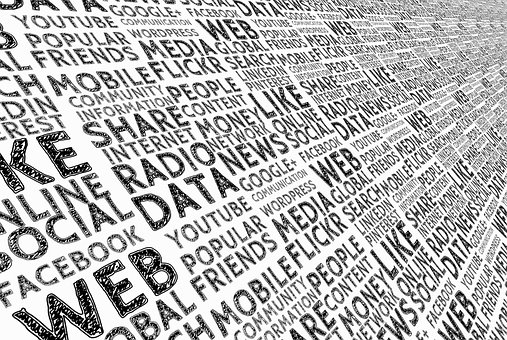The exposé by our media, in particular Scorpio and amaBhungane, of the Gupta emails are testament to the critical importance of media freedom for our young democracy. But media freedom is even bigger and more important than the essential public good of journalism and investigative journalism. As we approach Media Freedom Day on 19 October to celebrate and highlight how far we have come and examine new dangers, it is equally important that we also talk about the other dimensions of media freedom.
Far too often there is a sense that the right of media freedom applies only to media houses and journalists. A variation on the argument is used sometimes by those who don’t like media freedom to assert that media think they are different and have special rights. It simply isn’t true, but mainstream media must to some degree shoulder the blame for failing to challenge a view that media freedom is for big media only. It is a pity as media freedom is in fact a core right for the marginalised and all members of the public. Media freedom impacts so many areas of our lives; it has the potential to enrich and excite us as well as inform. So how does it impact our daily lives you may ask?
Some of our biggest hot button issues are indeed also media freedom issues. The emergence of ‘fake news’, how we deal with the pervasiveness of our online and social media and how we can be active digital citizens are all fundamentally also about exercising the right to media freedom, or finding a balance. This doesn’t exclude the critical role of mainstream media, rather by acknowledging the broadness of the right of media freedom more generally it may serve to bolster those who fight to protect the right, when everyone can see how it impacts their daily lives.
The concept of ‘fake news’ or dodgy news is a media freedom issue, where those who may bear the greatest cost are the most vulnerable and marginalised in our society. (See here.)
On a broader level, those who seek to undermine our democracy, those who seek to misinform, to offer alternative facts, do so for a reason. On a simple level, they may wish simply to make money through click bait and dodgy ads with scantily clad women assuring you that you can make money by watching a video.
Who determines what is fake?
In more sinister cases we have seen how Bell Pottinger sought to shift discourse, to misinform people through misleading news and information. These are common tactics of propagandists the world over. The problem with dodgy news is that by spreading doubt, by undermining facts, by denial of realities, by deliberately misleading or deceiving people it undermines our right to inform and be informed. In other words, it is a clear media freedom issue.
The question raised by dodgy news is where and how do we draw a line? On one level, it sounds like a great idea to simply ban, or even criminalise fake news precisely because it can cause real harm and undermines our democracy.
The challenge though, is who determines if it is fake, and what about the right to freedom of expression? As much as we may dislike what is being said, surely people have the right to stand up and talk nonsense, even spread untruths? (Imagine if we outlawed such speech, politicians and advertisers the world over would have practically nothing to say.)
Dealing with dodgy news then requires us to balance media freedom, freedom of expression, the right to inform and be informed with our social reality and building our democracy. While social media cannot shoulder all the blame for fake/dodgy news spreading so quickly, the advent of social media and how news spreads means that just about anyone can set up a site that looks legitimate. So, dealing with fake/dodgy news necessitates a shift in understanding that rather than simply being told what’s in the news. It is now up to all of us to sift and be able to determine what’s credible from what isn’t.
An essential element of democracy
There can be many arguments made as to whether mainstream media and journalists are doing enough to inspire and build credibility. As an organisation that watches the watchdogs, we are working on tools to help build, promote and enable the public to know which sources are credible and which are less so. (See here for one example.) What is clear, however, is that for us to have a meaningful understanding of media freedom as a right, it is essential that as a society we have credible sources of information all can access. Media freedom is thus not simply a right for mainstream media, but an essential element of our democracy, which requires all citizens to actively engage in our democracy.
The issue of access to the internet is itself increasingly considered a facilitative right. In other words, having access to the internet enables or facilitates the realisation of other rights, including media freedom. (See here for more.) The #datamustfall issue is thus not simply an issue of making access more affordable, it is equally about being able to realise rights to inform, be informed, freedom of expression and bundled with those, the right to media freedom.
Of course, with access to the internet comes huge potential but also, substantial risks, especially for our young people. As our distal reality continues to be defined and built, it is essential that people acquire the skills to do so in a safe, knowledgeable and responsible manner. In the same way as people need a driver’s licence to drive a vehicle, so too do users and people who access the internet. The right to freedom of movement is not determined by whether you can drive a car with a licence, but it certainly makes exercising that right a lot easier.
Similarly, not having digital skills doesn’t mean you don’t have the right to freedom of expression or media freedom, but somebody’s ability to exercise those rights, and others, is greatly enhanced if they don’t only have access but also the skills necessary to be active digital citizens.
Realising media freedom, knowing who and what to trust and what to do online are new life skills for a modern democracy. It is the fundamental reason why our government supports digital literacy through the Film and Publications Board and the Department of Communications. It is also why we are working to build digital and critical literacy skills with our young people. Working together with key partners including Google, Facebook, the Film and Publications Board and MTN, young people are giving young people the skills to be safe active digital citizens. (See here.)
The relationship to media freedom of social media and tech giants like Facebook and Google is not straightforward. In some countries the entities are banned, in others, the algorithms that underpin them have been the subject of critique (See here.) In other instances, their sheer power, knowledge and use has been highlighted as potentially being able to heavily influence elections, or through adverts possibly allowing others to influence them. (See here).
The rise of hate speech, and the ease with which our online world enables its spread, together with uncertainty and fears of the power of these giants helps us understand how and why some governments want to clamp down on the internet. In some places, we see the only response is to shut down the internet in an entire country or in parts to stifle protest and the spread of information. We see this occurring in parts of Cameroon, a dangerous and unacceptable limitation of media freedom. (See here.)
The issue of online regulation
Outside of the fascist tendency to block or ban the internet or tech giants, there are several thousand shades of grey as to how the online world can, if how, or should be regulated. In South Africa, in the first draft of the Film and Publications Amendment Bill, we saw a particularly egregious effort regulate the internet and undermine media freedom. It has been substantially improved, but subsequent efforts through a draft Cyber Crimes and Cyber Security Bill will have profound negative impact not just on our society and freedom of expression, but also media freedom.
The challenge lies in how we balance the benefits and pros of tech giants like Facebook, Google and the internet more generally (and there really are many, many benefits) with the cons. Resolving these questions is about balancing a variety of rights, centrally media freedom. The issue of online regulation is thus a media freedom issue.
The examples provided above are brief summaries of areas that warrant analysis and discussion in their own right. What I hope they highlight however is that as we defend, deepen and build our democracy, the issue of media freedom is not simply one for media houses and journalists to highlight and defend, it is a right central to our democracy and one which every person, whether online or not, will bump into on a daily basis.
As we remember 40 years since The World was banned  (formerly known as The Bantu World), and when media freedom was deeply limited, we can and must also celebrate how the right has expanded to be essential to the well-being for all people in our country.
(formerly known as The Bantu World), and when media freedom was deeply limited, we can and must also celebrate how the right has expanded to be essential to the well-being for all people in our country.
William Bird (@Billbobbird ) is executive director of Media Monitoring Africa which is hosting a series of events from 16 October in Media Freedom Week to help unpack media freedom. This story was first published by the Daily Maverick and is republished here with permission of the author.














